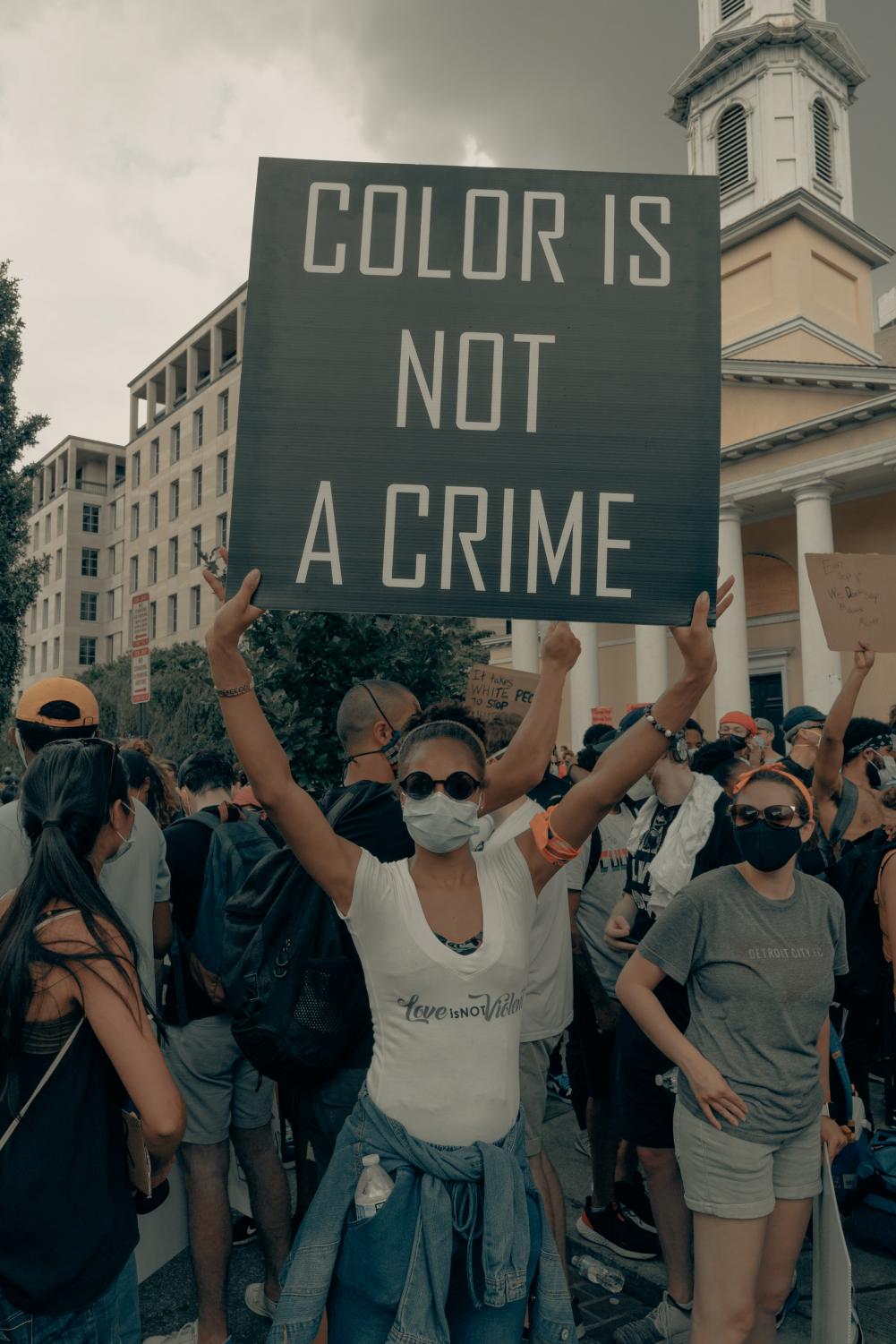
ENVIRONMENTAL RACISM: WHAT IS IT?
REPORTER JADE DAVIS INVESTIGATES THE CAUSES AND EFFECTS OF THIS NEW, CONTROVERSIAL ISSUE
March 25, 2021
Who knew climate change and race could intermix?
Before you start using “environmental racism” as a buzzword, though, you might want to know what it is, who it affects, and whether your hometown is considered an environmental justice community.
“Environmental racism is the fact that power plants and other fossil fuels and polluting industries have been placed in low-income Black and Brown communities and marginalized communities,” states Nora Elmarzouky, a Climate Justice Organizer for the Philadelphia activist group POWER (Philadelphians Organized to Witness, Empower & Rebuild).
With research, it is without a doubt that Midland makes the cut as an environmental justice area. According to the DEP (Department of Environmental Protection), 20 percent and below of the population in a town must suffer from poverty while 30 percent or more of those people are minorities. Let the record show the Lincoln Park community is composed of 43 percent of those having a low level income and 14 percent non-Caucasians.
Yet what can be done to combat environmental racism?
“The other thing to remember for any age,” Elmarzouky says, “is that we can all play different roles in addressing issues of environmental racism, and that can look like participating and changing the narrative in a variety of ways.
“So maybe you’re an artist, maybe you’re a dancer, maybe you’re a music maker; any kind of creation of content can be used as a tool to change the narrative.”
In a real life scenario of environmental racism being confronted by law, Julie Greenberg, director of climate justice and jobs, tells POWER’s side of the story:
“We and our allies said to SEPTA (Southeastern Pennsylvania Transportation Authority), ‘No new fossil fuel infrastructure,’ and they decided to build a new gas plant anyway.
“So every step of the way, every time they needed a hurdle, we would pack the hearing rooms and testify against them and try to prevent them from getting the permit,” says Greenberg, “and every single time we lost.”
However, as this story went to press, Elmarzouky received information that the External Civil Rights Compliance Office of the Environmental Protection Agency is reviewing a complaint filed by POWER in late February, as part of the organization’s gas plant civil rights lawsuit. The office is determining whether it has jurisdiction, and whether it will then open the investigation that POWER has requested.

As for SEPTA, The SIREN reached out to the media relations chief press officer of the company, who did not respond in time for the print edition date. However, here is their climate statement from their website:
“Today, sustainability is the lens through which SEPTA views its impact on the region and holds itself accountable for ensuring an economically prosperous, socially responsible, and environmentally sustainable future.”
Elmarzouky says that POWER has also tried to push PECO — the Philadelphia Energy Company — to add local “green” jobs.
“And that essentially means they should have a plan to transition to clean power and hire locally to make that happen,” Elmarzouky says. “That addresses environmental racism in a broader sense.”
PECO did respond to The SIREN’S interview request, with the following statement, via email:
“PECO recognizes the historical, negative impact of environmental racism. As a result, we are providing clean energy solutions and technologies to combat climate change; reduce local air pollution; and power a healthy, sustainable, and equitable future. Additionally, we are working to eliminate barriers to economic empowerment, through energy jobs training programs We recognize the need for innovative energy solutions to combat against a changing climate, and we are committed to ensuring our solutions are viewed through a lens of racial equity,” writes Alexandra Coppadge, a Public Statement Official at PECO.
But environmental racism can also have other effects besides damage to the Earth. One of these negative effects, says Lincoln Park biology teacher Danielle McKenzie, is sociological segregation.

“Wealthy people don’t want to live near unsightly and environmentally dangerous locations,” points out Mrs. McKenzie, via email.
“They are wealthy enough to move if an area is undesirable,” she adds, “or wealthy enough to lobby for or against community changes.”


